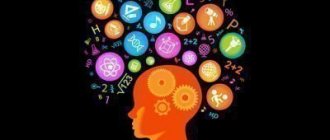There are those who believe that personal development is only about self-actualization, but the truth is that it includes many other factors that shape your character and prepare you for life.
It's definitely not about proving to yourself or other people what you're capable of. You must work to awaken your consciousness and strengthen your mind and thoughts in order to achieve success on your own.
And maybe this sounds a little utopian to you, but you will be surprised to know that the brightest minds or the most accomplished people had to experience deep personal development in order to reach the pinnacle of success.
Therefore, this should give you an idea of how important it is that you work on yourself to improve your consciousness and personality so that you can then enjoy the quality of life that you truly deserve.
How are a person’s personal qualities classified?
Personal qualities are a complex of complex components of both biological and socially determined components of personality. In this article we will look at the basic qualities of a person. They demonstrate all the features of internal mental properties:
- individual passages of internal mental and psychological processes within a person
- a complex of states and properties of an individual personality;
- character traits;
- type of temperament;
- behavioral characteristics;
- the nature of communication and interaction with others;
- attitude towards oneself, etc.
Personal qualities of a person:
- positive;
- negative;
- strong-willed;
- professional;
- and moral qualities.
Before we begin to analyze certain aspects of personality, it is necessary to remember that any classifications in this matter and assessment of personal qualities are very conditional. This is explained by the fact that everything in the world is relative, even the concept of good and evil. The division is based on generally accepted moral and ethical standards. Let’s agree that we will attach the word “conditionally” to each definition: conditionally positive, conditionally negative, etc. For example, aggressiveness is a conditionally negative characteristic. It will have unpleasant consequences in one situation, but in a situation where you need to stand up for yourself, it will be the only correct one.
Social and psychological qualities of personality
Personality development - what is it in psychology
The properties and qualities of personality in social and psychological terms in social science do not have a single clear definition. In the scientific works of psychologists there are several different opinions on this topic. Here are the main ones:
- If we interpret the term “personality” as a synonym for the word “person,” then qualities mean characteristics. If personality is a component of qualities, then human traits are determined by social properties.
- Sometimes the concept of “socio-psychological traits” includes the opposition of basic and secondary properties (from the perspective of differences between personal and general psychological).
- The structure of an individual is perceived as a set of traits and properties. Or, on the contrary, as a specific system consisting not of qualities, but of other elements.
Based on this list, it is clear that it is difficult to unambiguously determine the socio-psychological properties of a person. Because, firstly, there is no specific list of such qualities and criteria for identifying them. Secondly, there are contradictions in the relationship between abilities and properties. All these aspects require close attention. Their essence will be studied by sociologists and psychologists for a long time.
Positive human qualities
Positive qualities of a person
Positive qualities of a person are a category of a person’s internal good, which brings both himself and others positive experiences and a sense of satisfaction. The full list of positive qualities will be impressive. Therefore, we will give only the main ones:
- kindness;
- responsiveness;
- hard work;
- patience,
- responsibility;
- peacefulness;
- friendliness;
- loyalty;
- unselfishness;
- honesty;
- self confidence.
There are no ideal people: those with only positive qualities exist only in fairy tales. However, there are a lot of those in whom positive human qualities prevail. Often the presence of the listed properties is the personal qualities of a leader. Thanks to them, leaders are able to win over, gain trust and lead.
Development of personal and professional qualities
With the beginning of active professional activity, a person begins to realize not only his personal qualities, but also his professional ones.
The choice of a field of activity and the successful realization of oneself as a specialist depend on them. A person spends most of his life at work, and many expectations and aspirations are associated with this side of life. It is the qualities of a person as a professional that are the guideline by which a person’s compliance with his position, and in general, his field of activity, is assessed. An adequate perception of oneself in the team and the employees around is also an indicator of success as a professional.
A person who has a certain set of qualities suitable for his chosen profession develops much faster and achieves high goals, is confident in himself, and knows how to act to climb the career ladder.
Each individual profession requires certain professional qualities. Despite this, there is a list of general criteria that employers pay attention to. Their presence is welcome in almost any field of activity. Since not only his personal success, but also the development of the entire organization depends on the professionalism of each employee, the employer pays special attention to this factor.
Read further: Test “Which profession is right for you?”
Main professional qualities
The most important qualities are:
- ability to work as a team with a team;
- fast learning and flexibility;
- initiative, but not focusing on oneself;
- ability to complete a task without constant supervision from superiors;
- the ability to defend and argue one’s opinion;
- reaction speed and ability to take responsibility for one’s decisions;
- ability to accurately follow job instructions;
- communication skills and the ability to resolve conflict situations.
Professional qualities, like personal ones, are the result of the educational process. The contribution of parents, the general atmosphere in the family, confidence in a reliable rear as relatives help a person to feel confident, easily set goals and achieve them. The social sphere, the influence of teachers, friends is also important. However, the absence of traits instilled from childhood is not necessarily the final verdict. A person can always independently develop the necessary professional qualities.
Negative human qualities
Negative qualities of a person
Negative qualities of a person are properties that are undesirable for the person himself and those around him and require correction; which are undesirable and require correction. There are a lot of them. The complete list could fill a small brochure. Just a few of them will be listed here:
- deceit;
- hypocrisy;
- coarseness;
- laziness;
- tendency to depression;
- aggressiveness;
- hatred;
- impatience;
- passivity;
- weakness of will;
- cowardice;
- touchiness;
- sloppiness.
These and similar personal qualities of a person determine their corresponding summing up: a slovenly person will look unkempt and create the appropriate atmosphere around him. Irresponsible - work poorly and let yourself and the team down.
For those whose character is dominated by negative human qualities, there is good news: shortcomings can act as a “kick” to a rapid leap forward and internal growth. This is available to everyone.
A complete list of all human qualities can be found here.
Psychology of Personality Development
The psychological approach to this topic is that it is a process of personal growth that allows you to improve your skills and knowledge to improve your self-esteem and personal skills.
This is because when you know yourself, you can use your abilities, potential, or work to overcome your fears.
To achieve this, you must follow a number of basic steps, which are discussed below.
Improve your self-esteem
If you don't love and value yourself for who you are, then it will be difficult for you to move in the right direction.
This is why it is so important that you strive to understand the skills and virtues that have helped you achieve the most valuable achievements in your emotional, work or personal life.
But you must keep in mind that this value does not remain unchanged, it can transform very quickly, mainly due to difficult experiences or due to the impact of the environment on your own existence.
Manage your emotions.
You cannot grow as a person if you are in a painful, conflictual or unwanted emotional situation.
Although you may not believe it, emotions and feelings greatly influence the way you behave and the decisions you make - whether positive or negative - and this directly affects the quality of your life.
In this sense, it is necessary that you take care of getting rid of everything that causes pain, as well as cultivating and protecting those feelings that bring you well-being and allow you to adapt to reality.
The most advisable option is that you should develop a high level of emotional intelligence so that you can recognize your emotions, express and control them in a healthy and wise way, learning invaluable psychological skills.
Volitional characteristics
Let’s touch on the main ones:
Purposefulness – a person’s focus on the chosen result of an activity. This property is divided into a strategic variety and a tactical one. The first is, in general, a person’s actions based on his moral positions, values and ideals. The second is the movement of the individual “step by step”, from one micro-goal to another until the result is achieved.
Initiative is a person’s focus on taking action. Usually precedes the beginning of a volitional act. Independent individuals have this property. Initiative is associated with independence.
Independence is a person’s voluntary and active attitude to make decisions in accordance with his principles and beliefs.
Will is not considered an innate quality , but is considered by psychology as a quality, the formation of which occurs on the basis of a person’s personal choice.
Principles: where to get it
Principles are the basis of personal growth. As you can see from the examples above, without having clear principles and understanding them, it is easy to go in the wrong direction.
Relationships, money, achievements, if they are created without taking these principles into account, then they will either be very difficult to create, or then they will not last.
Therefore, put principles at the basis of any undertaking. But sometimes, as with tickets or paper in the office, it is very difficult to notice the places where you deviate from your own principles, and personal growth stops.
This happens because the concepts of honesty, kindness, and lack of selfishness can vary greatly from person to person. Secular society does not set any strict standards for morality. There are laws, but they are not enough to develop humanity and have a moral core on which the personality rests.
What moral values are is well understood in all the major religions of the world. Where to start studying them?
- To develop a moral core, you can study the materials of the closest religion, read books, listen to lectures, attend services.
- Those who are completely uncomfortable with the thought of studying religious materials can read books on personal growth, for example, by Stephen Covey. They have a good discussion of human values, but there are no references to religion. This author took all the best from the major religions and was able to convey to the reader in a form in which even the most inveterate atheist can easily read everything in his books.
Professional properties
Professional merits are influenced by such human qualities that can be called: personal qualities of a leader. There are several categories:
- verbal component – responsible for the ability to understand the meaning of information conveyed in words;
- numerical – the ability to quickly solve arithmetic examples in your head;
- trigonometric - the ability to mentally see in 2-3 dimensions;
- visual – attention to detail, equal to the children’s game “find 10 differences”;
- proofreading – the ability to quickly correct words and numbers;
- coordination - the ability to quickly coordinate fine and gross motor skills of the arms, legs, as well as good motor coordination;
- visual – the ability to coordinate the direction of gaze with the movement of legs and arms;
- comparing - sensitivity to color and its shades, the ability to see and distinguish them;
- learning ability - the ability to grasp meaning, the ability to reason, the ability to draw correct conclusions (general intelligence).
Are goals needed?
Having defined what personal growth is, we noted not only the development of humanity, but also the ability to achieve one’s goals. The principles will help you choose and achieve goals without harming others.
The second important point in personal growth is setting goals. Do you need to set goals for personal growth to occur? What matters here is what goals we are talking about, because an attempt to achieve humanity can in itself be a goal. That is, the development of humanity, as well as adherence to principles, is the goal. But personal growth is possible even when humanity is the basis, and goals are not related to the development of the qualities of a moral personality.
Let's look at an example of personal growth that is not related to the development of moral qualities. For example, a person wants to develop the ability to persuade. You can find many different trainings where the development of such ability will be presented as personal growth.
Depending on how the concept of “personal growth” is defined, the development of this skill will or will not be personal growth.
If we consider the development of the skill of persuasion for a harmonious moral personality, then personal growth will occur if a person takes into account the principles. That is, he learns to persuade without using manipulation, intimidation, or throwing mud at competitors. Otherwise, for a moral and integral person, personal growth when acquiring the skill of persuasion does not occur.
Professional specialization
Each of these properties is considered in accordance with professional significance. For example, driving is contraindicated for a person who is unable to distinguish colors (color blindness). A person with low numerical ability will not be hired as a leading economist.
It is also necessary to list the following personality qualities, without which mastering a profession will in principle be impossible:
- Properties of an individual-typological nature (endurance, physical strength, lability of the nervous system) - in other words, stress resistance.
- Analytical properties that allow you to acquire unique abilities over time. Example: “technical hearing” is the ability to understand the cause of a mechanism malfunction without instruments, only relying on experience.
- Attentiveness directly depends on a person’s interest and desire to have up-to-date information about reality and to adequately evaluate it.
- Psychomotor skills are the special properties and perceptions of a person that guide him when choosing a course of action to achieve his goals. It also includes the speed of analysis and the ability to quickly analyze a situation and make decisions. As practice shows, this skill can be trained well.
- Mnemonic qualities. Associated with memory. Professional memory is also freely trained.
- Imaginative features - the ability to imagine and complex thought processes
- Strong-willed qualities - they are not required for every profession, but they are always necessary to overcome difficulties in the process of work.
Level of development of personal qualities
Each person is born with a certain character and set of personal qualities that determine behavioral characteristics and life priorities. Throughout life, some qualities change under the influence of various factors, some remain for life.
Psychologists say that the main stages of character formation occur in the first five years of life, then they are slightly adjusted based on life circumstances.
The main indicators and criteria that form the level of personal development include: the ability to take an active life position, the level of responsibility, the direction of the way of life, the level of culture and intelligence, the ability to manage emotions.
Many aspects of life depend on personal qualities, from the choice of clothing style to the priority of activities for a future profession. If a person realizes the need for a higher quality standard of living, he will try to achieve what he wants. Personal qualities such as determination, self-confidence, and the ability to adequately assess reality and one’s capabilities help with this. Even if a person’s innate characteristics are not at the highest level, but with awareness of one’s individuality, there is always the opportunity to decide on an activity that will most fully reveal a person’s abilities. Moreover, if desired, there is always the opportunity to develop personal qualities.
The importance of morality in society
Morality is a set of voluntarily accepted rules for a person, which are of decisive importance in a person’s behavior and his attitude towards himself and others.
It is formed by the influence of many components:
- family values;
- individual experience;
- school influence;
- society.
Within the definition, there is differentiation into such subspecies as:
- racial;
- religious;
- humanistic.
The role of moral positions is important for any social group. There is an opinion that racists, bigots and others lack moral principles and moral qualities. This judgment is erroneous and unscientific. Also, according to research, such social groups have genetic roots and cannot always be controlled by humans.
Methods for developing personal qualities
The most important thing that a successful person should have, regardless of his professional activity, is self-confidence. This is the basis in any profession. It is not necessary to have leadership and lead everyone, it is enough to be able to adequately assess yourself and your capabilities, all possible risks. If you take on a task, you should never give it up if difficulties arise.
There are several basic methods that help in the development of personal qualities.
Introspection
The first step should be self-analysis to help highlight the qualities that you already have. Having decided on the missing qualities, you should choose ways to form them. This is a long and difficult process. It is important to initially decide on the desired result and develop several ways to achieve it. A prerequisite for success is the presence of deadlines for achieving the goal and an example to follow.
What does knowing your qualities give you?
Awareness and literacy in psychological issues is a kind of weapon. The ability to use it helps you avoid trouble and fight your enemies - both internal and external.
Mastering knowledge in the field of personality traits allows you to:
- increase your own level of self-awareness;
- understand society more deeply;
- learn to correctly set priorities in relationships with others and build relationships with them.
When applying for a job, when meeting a person of the opposite sex, when interacting with people on the streets of an evening city, the first task is always: to find out who is in front of you, what kind of person he is, what he is like. How to interact with him. And what will this or that tactic of behavior ultimately bring? It is impossible to understand another without first understanding yourself. On the other hand, assessing the personal qualities of other people allows you to compare yourself with them.
What kind of person is considered successful?
Each group of people, united by purpose or social status, has different ideas about well-being. It depends on the person’s ambitions, his personality. If we are talking about success in business, then the indicators will be: career growth, reaching leadership positions, achieving global goals, making open and scientific breakthroughs.
The criteria for well-being are individual, and in each area they are considered holistically from different points of view: the internal structure of the organization, the principles of a person and the degree of personal development. For example, for an actor, success is recognition, being in demand; for a scientist - recognition and popularity; for software developers - the amount of profit from sales. But this does not mean that the designated representatives of the professions have reached the heights they dreamed of. As a rule, these people are unhappy in the domestic sphere. An aspect such as an unsuccessful personal life does not allow one to be called happy. Each individual has moral principles and foundations, and what is success for one is failure for another. Therefore, it is difficult to consider specific character traits in a general way.
Personal growth training
Personal growth trainings promote self-development and personal growth. Often such trainings are classified as psychotherapeutic activities. There is some truth in this, but in principle it is far from true. Developing self-confidence and strength is the direction of personal growth training. They are carried out with initially healthy people. However, this is not treatment, therefore it cannot be psychotherapy.
Personal growth trainings are classes that are aimed at increasing the potential of an individual, identifying and improving qualities that contribute to success in various areas of life. The main goal of such trainings is to transform the life outlook on ordinary things, change the usual stereotypes of mental activity and actions, actions that prevent an individual from becoming more successful and happy.
The main emphasis of the trainings is positive and high-quality transformations of the subject’s personality. With the help of specialized techniques, the individual is “programmed” for success in everything. After the trainings, a person feels more confident, calm, free and happy, regardless of the circumstances of the external environment.
There are two options for the focus of such trainings: those promoting natural personal growth (passive) and active personal growth.
Trainings aimed at passive personal growth are designed to improve health, strengthen the potential of the individual, and remove blocks that interfere with the development and growth of the individual. Using this technique, all negative situations can be overcome. Such trainings do not provide for the creation of direction or determination of what should happen to the individual, how personal growth will develop. Passive personal growth is determined only by the individual’s internal programs. And the role of the training leader is simply to create optimal conditions for personal growth.
Passive personal growth trainings are aimed at working with both the past and the present. They help to find a way out of certain current situations, learn to react more easily and simply to circumstances, and cope with such circumstances in any areas of life. Transformational trainings can be considered the best trainings of this type. Their main focus is working with deep conditioning mechanisms, such as values and beliefs, awareness, compensatory and psychological defense mechanisms, etc. Thanks to this training, one can notice the following positive changes in the individual’s personality: expansion of the worldview, the emergence of a sense of insight, liberation from beliefs that limit it, and the negative influence of others. The result of transformational training is the discovery of new opportunities for oneself.
During active personal growth trainings, personality transformation occurs at the level of self-identification. It is aimed at obtaining knowledge and developing specific skills in subjects. These include training aimed at developing leadership qualities, increasing professional effectiveness, and educational training (for example, training in correct target settings).
Personal growth trainings can be conducted live and online via the Internet. Trainings help activate thinking. After passing them, the individual begins to think about the meaning of life, about his life goals and position.
Each training contains a certain set of exercises aimed at developing personal growth, for example, the exercise “me in the future”, “syringe”, “taboo”, “Self-presentation”, “Pessimist, Optimist, Jester”, “What step am I on?” , “Thrift Store” and many others.
The “future self” exercise involves drawing your personality in the future and defending your picture to others.
The purpose of the “syringe” exercise is to help participants deeply feel and experience the conditions of persuasion, to form the so-called immunity to any psychological influence.
The purpose of the “taboo” exercise is to help participants understand how their attitude towards various kinds of restrictions and prohibitions manifests itself.
The purpose of the “self-presentation” exercise is to enable adaptive mechanisms, to practice the expression of emotions that contribute to the processes of professional adaptation.
The purpose of the “pessimist, optimist, buffoon” exercise is to form an individual’s unified attitude towards problematic situations, to gain experience in analyzing problems from different points of view.
The purpose of the exercise is “what step am I on?” is to help participants build adequate self-esteem.
The purpose of the “thrift store” exercise is to develop skills of self-understanding, introspection, self-criticism, and to discover qualities that are essential for an individual in teamwork.
Literature
1. Atlas of new professions [Text] // First edition - ASI, Skolkovo. – M., 2014. 2. Dodova, L.M. Psychological, social maturity and its phenomenological manifestations in adolescence [Text] // Prospects for the development of modern scientific knowledge: collection of scientific works - Cheboksary: Educational and Methodological Center, 2011. - P. 98-105. 3. Ivanchenko, G.V. On the threshold of a professional career: social problems and personal choice strategies [Text] // World of Russia. 2005. T. 14, No. 2. P. 97-125. 4. Makarov, V.V., Makarova G.A. Transactional analysis - Eastern version [Text]. - M.: Academic project, OPPL, 2002. 5. Petrova, G.I. “Self-care”: technology or anthropology? [Text] // Bulletin of Tomsk State University - Philosophy. Sociology. Political science. - 2009, No. 2(6), pp. 136-143. 6. Popov, A.A. Philosophy of open education. Socio-anthropological foundations and institutional and technological capabilities [Text]. Tomsk; Biysk: Publishing house. house "Biya", 2008. 7. Slobodchikov, V.I., E.I. Isaev Psychology of human development: development of subjective reality in ontogenesis [Text]: Textbook for universities. – M.: School press, 2000. 8. Strategy for the development of education in the Russian Federation for the period until 2025 [Text] // Order of the Government of the Russian Federation dated May 29, 2015 N 996-r, Moscow. - Russian newspaper - Federal issue No. 6693 (122), June 8, 2015 9. Modern educational technologies: textbook / edited by. ed. L.L. Rybtsova. - M.: Yurayt Publishing House, 2017; Ekaterinburg: Ural Publishing House. un-ta. 10. Stewart, Y. and W. Joines. Modern transactional analysis [Text]. - St. Petersburg: Social and Psychological Center, 1996.










